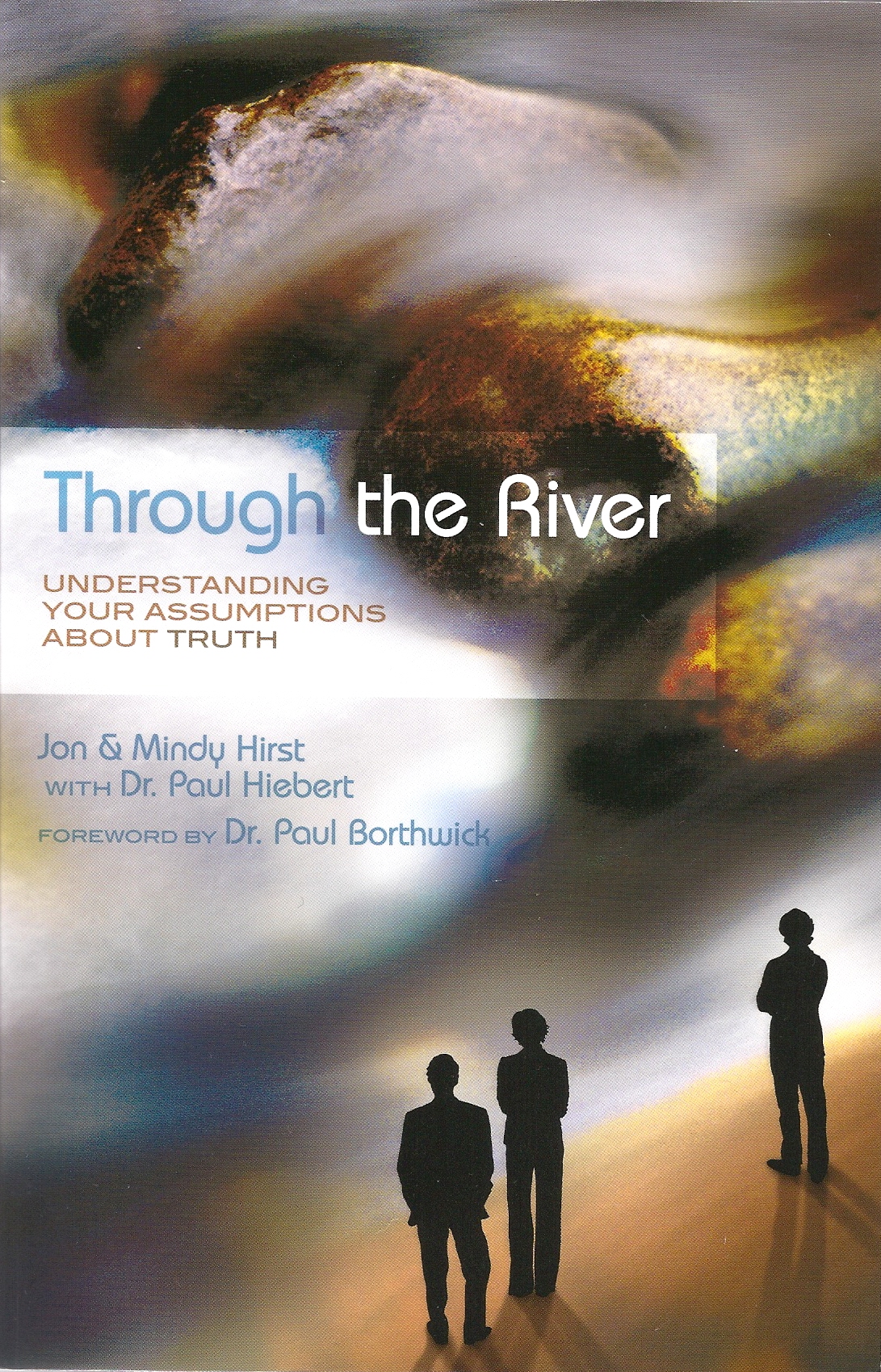 Through The River: Understanding Your Assumptions About Truth
Through The River: Understanding Your Assumptions About Truth
Jon and Mindy Hirst, with Dr. Paul Hiebert
Colorado Springs: Authentic Books, 2009, 201 pp.
by Matthew Raley
This short book on epistemology will be useful to its intended audience, and, as with any book, potentially frustrating to others.
I take the intended audience to be evangelicals who hold a high view of the Bible, and who wrestle with how to engage the many perspectives in contemporary society. This audience wonders whether one can engage them at all with a high view of Scripture, or whether to believe the Bible is to opt out of today's culture. Put another way, the question is whether one can engage without compromising truth.
The Hirsts, in their popularization of the late Dr. Paul Hiebert's work, argue that truth remains an objective category. Truth really exists outside our own heads. They write (p 22), "Simply put, we know that God is truth. He is the Creator of all that is sure, all that is known, and all that is to be." They add, "Our pursuit of truth may begin in ourselves, as we struggle with our finite humanity, but it ends in Christ."
Knowledge of the truth, however, comes through a process. That process is not best conducted in debate, with systems built and defended, and competing systems attacked -- one of the "truth lenses" the Hirsts describe. Nor is the truth found by isolating ourselves inside our own passions and priorities -- a second lens. The process of knowing the truth is a collaborative one, in which we discover truth relationally through dialogue -- a third lens, which Hiebert called "critical realism."
In other words, evangelicals shouldn't have a dilemma between engagement with diverse perspectives and truth. Rather, truth is learned through engagement.
The Hirsts expound this thesis using two stories, one about a river, another about a boat. Some readers will respond very well to this approach, though for me the narratives required too much explanation to be enlightening. But that is an issue of preference.
Many evangelicals need to encounter these ideas, and Through the River is a tool I will use. But those who think evangelicals should have ditched the Bible long ago, and who can't understand why anyone should trouble herself over objective truth, will have little use for this book.
